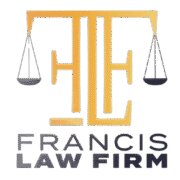Best Communications & Media Law Lawyers in Egypt
Share your needs with us, get contacted by law firms.
Free. Takes 2 min.
Or refine your search by selecting a city:
List of the best lawyers in Egypt
About Communications & Media Law in Egypt
Communications & Media Law in Egypt is a critical aspect of the legal framework that governs how information is disseminated and controlled within the country. This area of law covers a wide range of issues including telecommunications, broadcasting, the internet, advertising, and censorship. The governing authorities, such as the National Telecommunications Regulatory Authority (NTRA), play a significant role in shaping the regulations that impact both individuals and businesses. These laws are designed to address technological advancements, protect consumer rights, manage the information dissemination landscape, and maintain national security.
Why You May Need a Lawyer
Given the complexity and breadth of Communications & Media Law in Egypt, there are several instances where legal assistance may be necessary:
- Launching a media outlet or telecommunications service.
- Navigating broadcasting licenses and regulations.
- Addressing issues of censorship and content restrictions.
- Protecting intellectual property and combating piracy.
- Handling defamation or privacy invasion claims.
- Compliance with advertising standards and consumer protections.
- Data protection and privacy concerns on digital platforms.
- Resolving disputes in telecommunications contracts or agreements.
A lawyer with expertise in this field can offer valuable guidance, help you understand obligations, and ensure adherence to local laws.
Local Laws Overview
The legal landscape in Egypt regarding Communications & Media Law is shaped by several key laws and regulations:
- Law No. 10 of 2003: Governs telecommunications policy, setting out the framework for telecommunications activities and services.
- Law No. 180 of 2018: Addresses the regulation of the press and media, establishing standards and requirements for media entities operating within Egypt.
- Cybercrime Law No. 175 of 2018: Focuses on cybercrimes, outlining offenses related to hacking, data breaches, and online behavior violations.
- Code of Ethics for Egyptian Journalists: Provides guidelines for professional conduct and responsibilities in media practices.
These laws are designed to ensure the responsible dissemination of information while balancing interests in privacy, security, and freedom of expression.
Frequently Asked Questions
What entities regulate media and communications in Egypt?
The primary regulatory bodies are the Supreme Council for Media Regulation, the National Telecommunications Regulatory Authority (NTRA), and the Ministry of Communications and Information Technology.
What are the requirements for setting up a media company in Egypt?
Establishing a media company requires compliance with regulatory standards, obtaining the necessary licenses from the Supreme Council for Media Regulation, and adherence to content guidelines.
How is freedom of expression protected under Egyptian law?
While freedom of expression is a constitutional right, it is subject to restrictions related to national security, public order, and morality as defined by local laws.
What is the process for acquiring a telecommunications license?
Acquirement involves submitting an application to the NTRA, fulfilling technical and financial requirements, and possibly undergoing a competitive bidding process.
How does Egypt regulate internet content?
Internet content is regulated under the Cybercrime Law, which sets penalties for unlawful online activities. Authorities can also block websites that violate decency, morality, or security standards.
Is there a law against fake news in Egypt?
Yes, disseminating false information that damages public interest or causes panic is punishable under various regulations, including media and cyber laws.
What are the penalties for breaching media regulations?
Penalties can include fines, suspension or revocation of licenses, and criminal charges depending on the severity of the breach.
How are personal data and privacy protected in online communications?
Data and privacy protection is governed under several frameworks, ensuring that entities handling data adhere to confidentiality and data integrity principles.
Can media content be freely censored?
Censorship is possible for content that threatens national security, public morals, or incites violence or discrimination, as per statutory and regulatory guidelines.
What is the role of the NTRA in communications law?
The NTRA regulates telecommunications, ensuring market efficiency, consumer protection, and fair competition among service providers.
Additional Resources
For more information or assistance, the following resources might prove helpful:
- National Telecommunications Regulatory Authority (NTRA): Oversees all telecommunications regulations and licensing.
- Supreme Council for Media Regulation: Manages media sector regulations and oversees content compliance.
- Ministry of Communications and Information Technology: Develops policies for ICT infrastructure and digital transformation.
- Local Law Firms: Specialized firms with expertise in Egyptian Communications & Media Law can provide further legal advice and representation.
Next Steps
If you require legal assistance in communications and media law, consider the following steps:
- Identify Your Needs: Clearly define the legal issue you are facing.
- Research Legal Services: Look for law firms or attorneys specializing in Communications & Media Law in Egypt.
- Consult with Professionals: Arrange a meeting to discuss your situation and explore legal options.
- Prepare Documentation: Ensure you have relevant documents that may support your case or legal query.
- Engage Legal Representation: Once satisfied with a lawyer's expertise and approach, formally engage their services to handle your case.
By taking these steps, you can ensure that you are informed and prepared to address any legal challenges within the realm of communications and media law in Egypt.
Lawzana helps you find the best lawyers and law firms in Egypt through a curated and pre-screened list of qualified legal professionals. Our platform offers rankings and detailed profiles of attorneys and law firms, allowing you to compare based on practice areas, including Communications & Media Law, experience, and client feedback.
Each profile includes a description of the firm's areas of practice, client reviews, team members and partners, year of establishment, spoken languages, office locations, contact information, social media presence, and any published articles or resources. Most firms on our platform speak English and are experienced in both local and international legal matters.
Get a quote from top-rated law firms in Egypt — quickly, securely, and without unnecessary hassle.
Disclaimer:
The information provided on this page is for general informational purposes only and does not constitute legal advice. While we strive to ensure the accuracy and relevance of the content, legal information may change over time, and interpretations of the law can vary. You should always consult with a qualified legal professional for advice specific to your situation.
We disclaim all liability for actions taken or not taken based on the content of this page. If you believe any information is incorrect or outdated, please contact us, and we will review and update it where appropriate.
Browse communications & media law law firms by city in Egypt
Refine your search by selecting a city.














